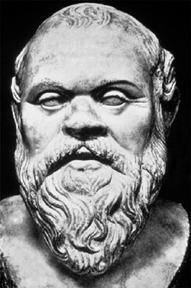Philosophy and philosophers
.jpg) The World Philosophy Day fell last Thursday and this is perhaps the
ideal time to devote this column to philosophy and philosophers. The World Philosophy Day fell last Thursday and this is perhaps the
ideal time to devote this column to philosophy and philosophers.
Philosophy defies definition because it is a very complex and an all
embracing subject. One way of answering the question "What is
philosophy?" is to say that philosophy is what philosophers do. This
begs the question: Who are recognized philosophers and what have they
done? We have no problem of identifying great philosophers because they
are very much alive today although most of them have departed from this
planet.
Even an undergraduate reading philosophy for his/her degree knows
something about Socrates, Plato, Aristotle, Rene Descartes, David Hume,
Immanuel Kant, Sartre, Bertrand Russell, Wittgenstein and J.
Krishnamurti. All of them shared a common characteristic of probing,
analysing and coming up with theories.
|

Socrates |
Etymologically, philosophy means love of wisdom. This is rather a
vague definition. Therefore, we might call philosophy an activity - a
way of thinking about certain problems. Again, what are these problems?
These problems concern the broader issues in life bordering on
mysticism. Philosophers all over the world have been examining man's
age-old beliefs and arguing among themselves to find out the truth. They
invent arguments, clarify concepts and criticise views held by others.
That means, there can be no final answer, rather everything goes on
changing.
Philosophers try to find out the meaning of life. They want to know
where we come from or where we go from here. Another area is religion.
Do we need a religion? Do all organised religions divide mankind?
Then they discuss what is right and wrong. Over the centuries,
philosophy has spread its wings to other areas such as language,
science, medicine, law and politics.
Western philosophy has its roots in Greece where the three great
philosophers lived and taught. Socrates, the son of a sculptor, goes
down history as the first philosopher in Western philosophy. Having
studied Greek, poetry, arithmetic, geometry and astronomy, Socrates,
like Prince Siddhartha, realised that his teachers were merely imparting
knowledge without explaining the logic behind their teaching. Then he
used his own intuition to gain true knowledge. There were no
universities or lecture halls for him to teach philosophy. So, he began
to talk with people visiting markets, gymnasiums, and schools. People
found his talks really interesting and called him the "Wise man".
Although Socrates was considered wise by his fellow men, he was
somewhat puzzled about this matter. He learnt that there was a popular
politician who was regarded as a wise man. Socrates asked him a series
of questions and found that he was not wise at all. The only difference
between Socrates and the politician was that the former was aware of his
ignorance but the latter was not. Over the years this method of
questioning and getting at the truth came to be known as the "Socratic
Method".
The next Greek philosopher we know of is Plato who was a pupil of
Socrates. Plato was disgusted with the political regime that brought
death to his guru. Then he came to the conclusion that genuine
philosophers should become rulers or the rulers must become
philosophers.
Plato founded his Academy (387 BC), which was considered the first
ever European university. He taught wide ranging subjects such as
astronomy, biology, mathematics, political theory and philosophy. He is
credited with the invention of the theory of vision involving three
streams of light: One from what is being seen, one from the eyes and one
from the source.
Plato's Academy lasted for more than 1,000 years until it was closed
down by the Byzantine Emperor Justinian in AD 529.
Plato's pupil Aristotle too made a name for himself as a renowned
Greek philosopher. He spent 20 years at the Academy and became a
lecturer thereafter. He too set up his own school which came to be known
as the Lyceum. Aristotle's treatises on Rhetoric and Poetics developed
the philosophy of criticism. He gave the much needed form to philosophy
and argued that God was not necessarily the ultimate cause of
everything. His influence has been far reaching and remains in force
even today.
Apart from the three great Greek philosophers, the world has seen
many others who have contributed immensely to this sphere. The eminent
British philosopher Bertrand Russell was also a mathematician and a
logician. His theory of definite descriptions has become a standard tool
of logical analysis. It is essential to all those who work in the
philosophy of language which essentially connects the meaning of words
with items in the world.
Although volumes can be written on philosophers who have brightened
this planet with their brilliant ideas, ordinary people still do not
know the value of philosophy. I have often heard the silly argument that
there is no point in studying philosophy as all philosophers do is to
sit around quibbling over the meaning of words. It is true that
philosophers hardly reach any conclusion. They are still arguing about
the same old issues that baffled Greek philosophers more than five
centuries ago.
Then, why should anyone study philosophy? It is often said that most
philosophers can come forward with brilliant arguments but they cannot
even boil an egg! This is because they are not practical men but
idealists. Those who study and teach philosophy know that it is
important to examine questions such as: What is life? Is there proof
that God exists? Do organised religions divide mankind? These problems
have to be examined from time to time in order to lead a life worth
living. You might live without examining any of these areas. It would be
like driving a car which has never been serviced! |

